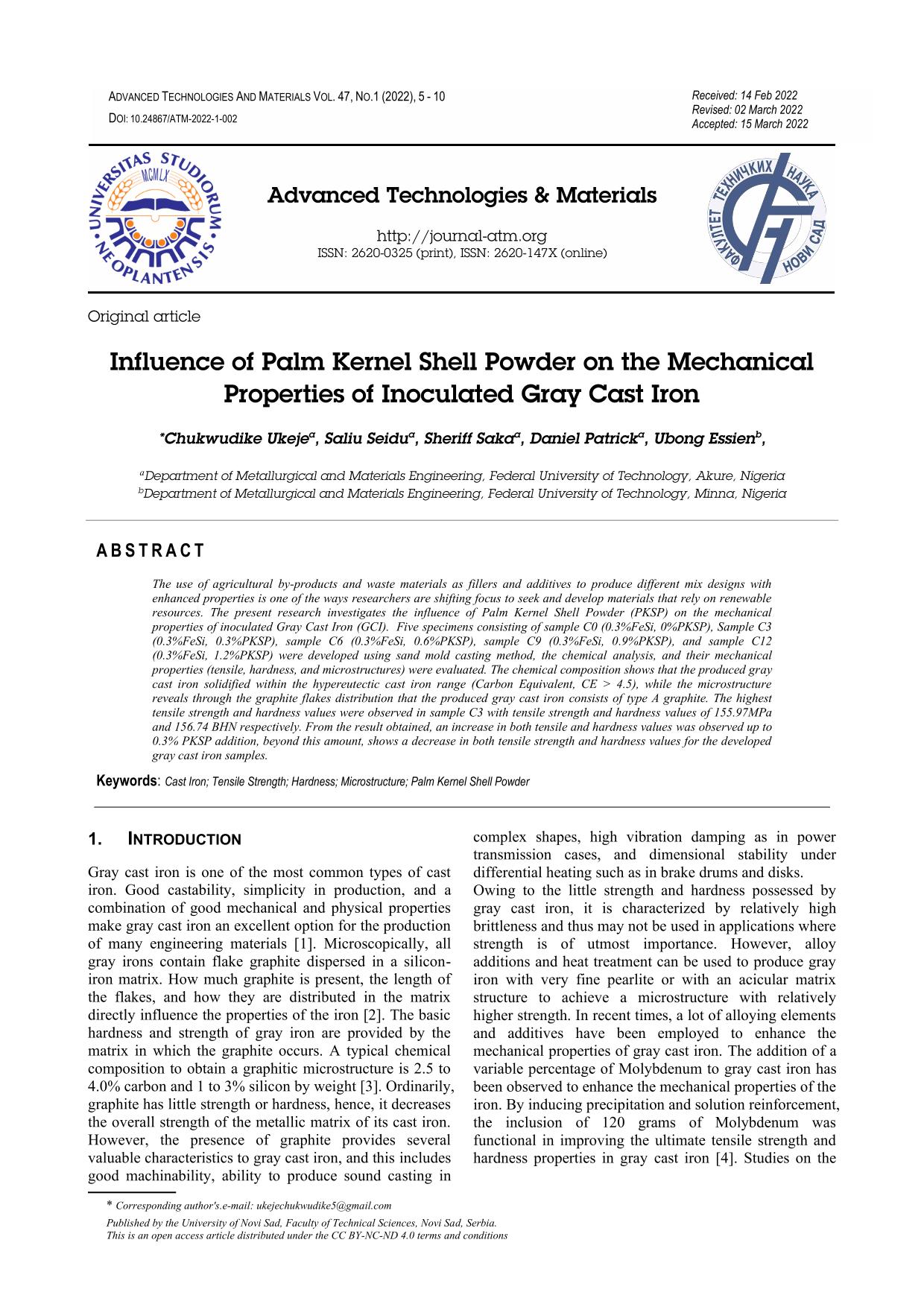Influence of Palm Kernel Shell Powder on the Mechanical Properties of Inoculated Gray Cast Iron

Published 2022-06-01
abstract views: 24 // Full text article (PDF): 16
Keywords
- Cast Iron,
- Tensile Strength,
- Hardness,
- Microstructure,
- Palm Kernel Shell Powder
How to Cite

This work is licensed under a Creative Commons Attribution 4.0 International License.
Abstract
The use of agricultural by-products and waste materials as fillers and additives to produce different mix designs with enhanced properties is one of the ways researchers are shifting focus to seek and develop materials that rely on renewable resources. The present research investigates the influence of Palm Kernel Shell Powder (PKSP) on the mechanical properties of inoculated Gray Cast Iron (GCI). Five specimens consisting of sample C0 (0.3%FeSi, 0%PKSP), Sample C3 (0.3%FeSi, 0.3%PKSP), sample C6 (0.3%FeSi, 0.6%PKSP), sample C9 (0.3%FeSi, 0.9%PKSP), and sample C12 (0.3%FeSi, 1.2%PKSP) were developed using sand mold casting method, the chemical analysis, and their mechanical properties (tensile, hardness, and microstructures) were evaluated. The chemical composition shows that the produced gray cast iron solidified within the hypereutectic cast iron range (Carbon Equivalent, CE > 4.5), while the microstructure reveals through the graphite flakes distribution that the produced gray cast iron consists of type A graphite. The highest tensile strength and hardness values were observed in sample C3 with tensile strength and hardness values of 155.97MPa and 156.74 BHN respectively. From the result obtained, an increase in both tensile and hardness values was observed up to 0.3% PKSP addition, beyond this amount, shows a decrease in both tensile strength and hardness values for the developed gray cast iron samples.

